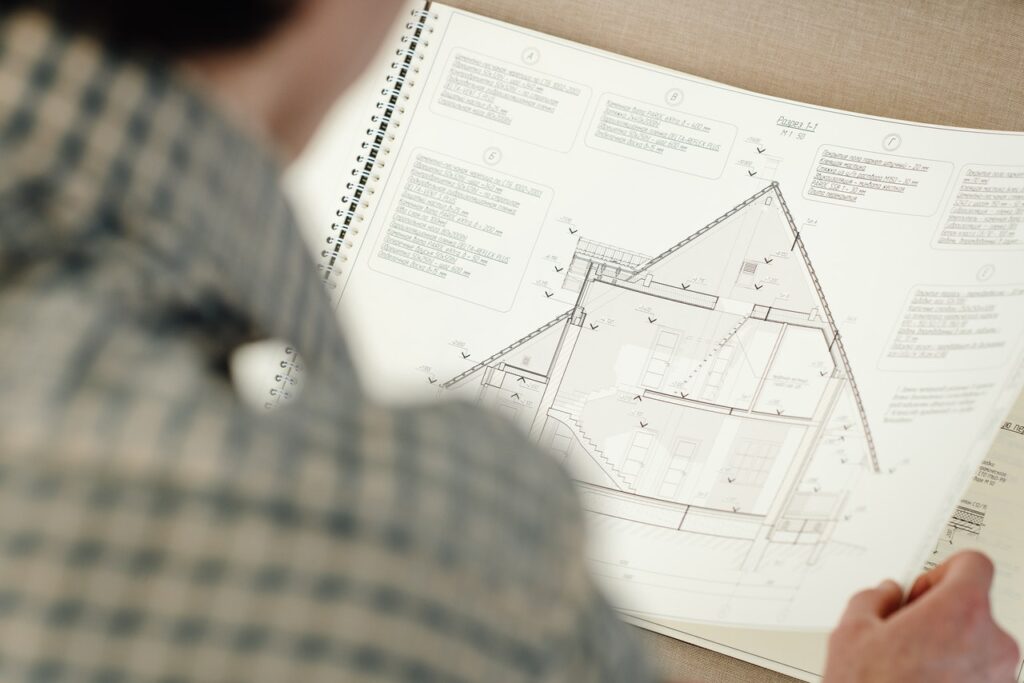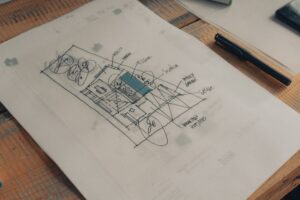
The Importance of Project Procurement Management
When you’re looking to start development on a home or commercial building, among the most important aspects of this project is project procurement management. Project procurement involves obtaining all of the services and materials that are needed for a construction project. Managing this process is essential to ensure that all of the necessary services and materials are selected and obtained by a specific deadline. Without having a manager in place for this process, you can purchase the wrong materials, accidentally have the materials delivered on the wrong date, or choose the wrong service providers. Project procurement management is essential if you want your project to be completed in a timely and efficient manner.
There are three separate phases that typically occur within project procurement management, which include indirect procurement, direct procurement, and services procurement. Understanding each type of procurement is necessary if you want to keep your project on schedule. Indirect procurement involves purchasing goods, materials, and services for internal use. Direct procurement involves acquiring materials, services, and goods for manufacturing. Finally, services procurement involves the process of procuring and further managing a workforce.
While the majority of companies have procurement teams, project procurement management is typically overseen by the project manager. Project managers are typically a part of construction companies but can be hired separately. Keep in mind that project managers differ from general contractors. While a general contractor is mainly responsible for the physical construction of the building in question, a project manager works with every party that’s involved with the project to ensure that the entire construction project is being completed according to plan. This article goes into detail about how important project procurement management is for the success of any project.
Key Takeaways:
- Project Procurement Management involves maintaining services and materials for the construction project at hand.
- The process contains three steps to complete the process and uses various types of contracts for managing vendors and other service providers.
- To be certain your project goes as planned, we recommend four simple tips the project manager should implement throughout the construction process.
The Project Procurement Process In Construction

There are three basic steps of the project procurement process, which include plan procurements, conduct procurements, and administer procurements. These steps involve:
- Plan procurements – This aspect of project procurement involves making a plan. The plan that you create should include a list of all services and materials needed for the project, contract requirements for purchases outside of your company, required delivery dates, the type of contract you want, legal terms and conditions, and preferred suppliers.
- Conduct procurements – It’s at this point that all request for proposal forms are submitted, bids are gathered, and final selections are made. You may need to negotiate with vendors throughout this process to obtain favorable rates. Contracts will then be signed before receipts are provided.
- Administer procurements – This can involve quality checks of the services and materials that were delivered to you. It’s also centered around monitoring the project procurement process to ensure that vendors provide all materials and services by the agreed-upon dates.
Types of Contracts Involved in This Process

The project procurement process will involve the signing of a contract with vendors for the services and materials that you require. There are four separate types of contracts that can be used during this process, which include traditional contracts, design and build contracts, management contracts, and contractor-led contracts. The type of contract you select depends on the procurement method that you’re using.
Keep in mind that a separate contract will need to be made for every material or service that you procure. The main point of signing these contracts is to ensure that the supply chain is handled properly and that everyone understands the role they have within the process.
Tips for the Project Management Plan

The project management plan that you create will dictate how well your project is completed. If everything goes according to plan, your development project should be a success. Without a project management plan in place, it may be difficult to properly manage all of the moving parts involved with a construction project of any size. To create an effective project management plan, the following details four tips that should make this process easier for you.
1. Put the Plan On Paper
While it’s up to the project manager to manage the entire project, the rest of the team should have a clear understanding of what the development process will entail. They should know how their roles will contribute to the project as a whole. Consider writing down a summary of your project management plan that can be distributed to the team. This summary should include such information as:
- The major steps of the development process
- The problem that your plan is meant to solve
- Any difficulties and risks that the team should take into account during the project
- The conditions that are needed for successful completion of the project at hand
When this plan has been written down and summarized, you can be confident that the rest of the team understands the goals that they’re working towards.
2. Consider the Timeline at Hand
Make sure that you heavily consider the timeline and overall scope of the project. You likely don’t want to set a short and aggressive timeline for the project that you eventually realize you can’t meet. The timeline that you create should take into account the possibility of unexpected delays during the development process. Your timeline should include notable milestones and deadlines for goals that your team can achieve. Make sure that you or the project manager provides the team with regular reminders of deadlines.
Keep in mind that delays to the project are possible if team members are required to complete nonessential tasks on a regular basis. The milestones that you set for the project should be important ones that don’t take away from the flow of the project. If you set milestones around nonessential tasks, the entire project timeline could be extended significantly. To keep the timeline under control, make sure that you manage the scope of the project.
3. Communication
Another way that you can prevent your team from making mistakes and delaying the project timeline is to communicate with them frequently. A communication management plan should be created for the project before the project is set to begin. This plan should take into account the main team for development, external vendors or partners, management, and other workers who are involved with the project.
Consider identifying what the right communication tools are for each of these audiences. You should also have a good idea of the kinds of information these audiences will require and the amount of detail that they need. By communicating regularly with everyone involved in the project, you should be able to prevent mistakes and minimize the damage caused by any issues that occur during the project.
4. Anticipate Complications
As touched upon previously, it’s exceedingly important that you anticipate complications throughout the project. Even the best managed projects will encounter complications, delays, and conflicts that delay the timeline and can cause frustration if you don’t know how to mitigate these problems. Some of the common types of complications include communication and delivery issues with vendors, poor risk management that negates to address short-term problems, a lack of structure, unrealistic timeline expectations, and inadequate skills with some members of the team you hire.
To better manage risk, it’s recommended that you create a contingency plan for the project. In the event that a risk turns into reality, a contingency plan will tell you what steps to take in this situation. Keep in mind that these plans can only be used for risks that you’ve already identified. A contingency plan should give you the ability to create a backup plan that will keep the project on schedule if ever a problem occurs.
You could also create a risk management plan that will allow you to limit the overall impact of problems that take place during the development process. With a risk management plan in place, team members will also be warned of identified risks, which heightens the possibility that these risks are avoided altogether.
The Role of the Project Manager
The project manager has a key role throughout the entire project procurement management process. This individual will work alongside a procurement team to make sure that all tasks in this process are handled correctly. During the planning process, the project manager will create a detailed plan with the help of the procurement team, design and engineering teams, the finance team, and the legal team.
The project manager typically isn’t involved with conducting the procurements. However, they should know the status of every material and service that’s being procured. When conflicts and delays occur during this process, the project manager must solve these issues and mitigate the damage to the project. This can involve making some tough decisions.
The entire procurement process for a construction project can take upwards of 8-12 weeks if handled properly. Make sure that you stay on top of any delivery delays with vendors. If implemented correctly, the timeline for your construction project shouldn’t be delayed.

Jason Somers, President & Founder of Crest Real Estate
With over 15 years of professional experience in the Los Angeles luxury real estate market, Jason Somers has the background, judgement and track record to provide an unparalleled level of real estate services. His widespread knowledge helps clients identify and acquire income producing properties and value-ad development opportunities.
Learn more about Jason Somers or contact us.



